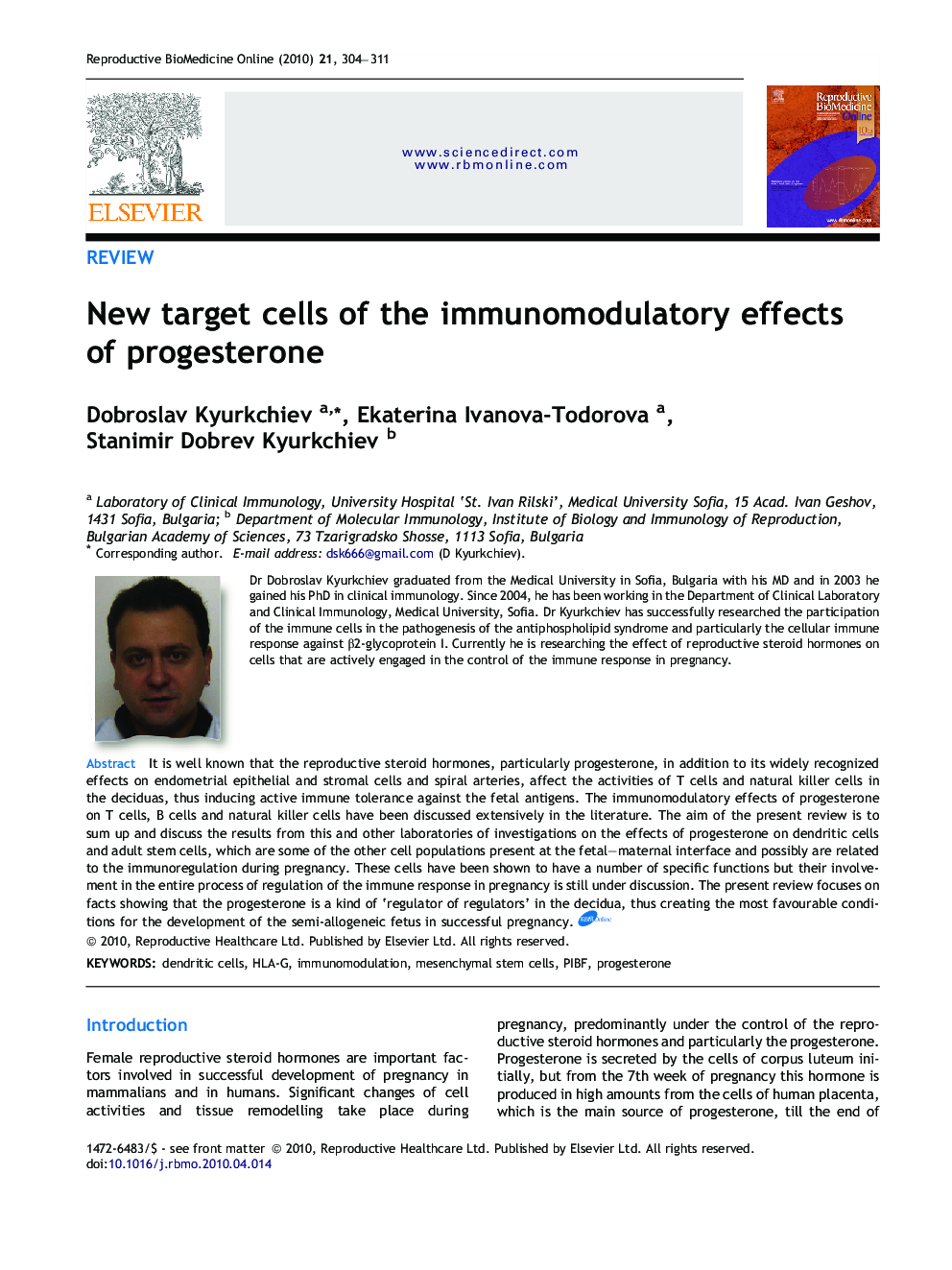| Article ID | Journal | Published Year | Pages | File Type |
|---|---|---|---|---|
| 3971508 | Reproductive BioMedicine Online | 2010 | 8 Pages |
It is well known that the reproductive steroid hormones, particularly progesterone, in addition to its widely recognized effects on endometrial epithelial and stromal cells and spiral arteries, affect the activities of T cells and natural killer cells in the deciduas, thus inducing active immune tolerance against the fetal antigens. The immunomodulatory effects of progesterone on T cells, B cells and natural killer cells have been discussed extensively in the literature. The aim of the present review is to sum up and discuss the results from this and other laboratories of investigations on the effects of progesterone on dendritic cells and adult stem cells, which are some of the other cell populations present at the fetal–maternal interface and possibly are related to the immunoregulation during pregnancy. These cells have been shown to have a number of specific functions but their involvement in the entire process of regulation of the immune response in pregnancy is still under discussion. The present review focuses on facts showing that the progesterone is a kind of ‘regulator of regulators’ in the decidua, thus creating the most favourable conditions for the development of the semi-allogeneic fetus in successful pregnancy.
